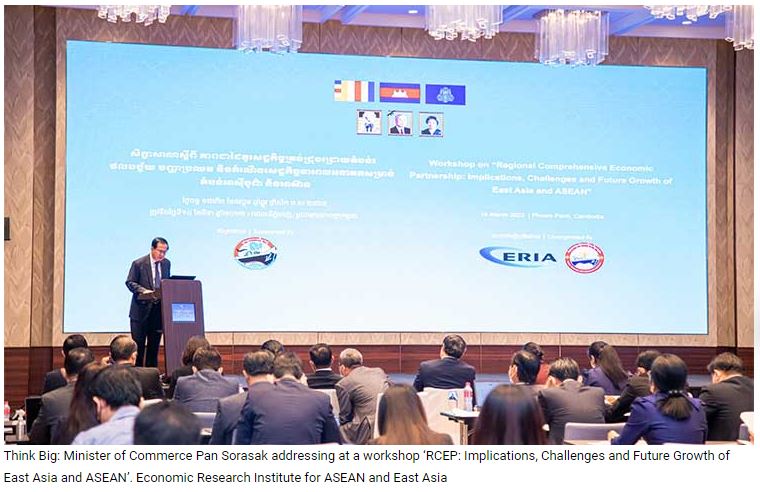Cambodia: RCEP could help Kingdom graduate from LDC status by 2027
‘The Cambodian economy will experience a larger positive impact on the domestic economy with deeper trade and investment facilitation and domestic reforms. The results highlight the importance of the RCEP for the pandemic and post-pandemic recovery and structural transformation of the Cambodian economy’
Following the confirmation of Cambodia’s eligibility to depart from the least developed country (LDC) status for the first time ever in 2021, the UN has stated graduation could be recommended “as early as 2027”, so long as the same standards are met when the Committee for Development Policy (CDP) assesses Cambodia again in 2024 triennial review.
The UN’s three criteria that dictate the Kingdom’s eligibility to graduate from LDC status include GDP per capita, which currently stands at $1,377, the Human Assets Index (HAI) which is presently 8.3 points above the threshold at 74.3, and an Economic and Environment Vulnerable Index of 30.6.
However, at the Workshop on Preparing for a Sustainable LDC Graduation of Cambodia, Pauline Tamesis of the UN Resident Coordinator Office, noted these positive statistics had yet to be offset against the effects of Covid-19.
“First is to note that the 2021 triennial review, due to timing of data available, did not take into account the impact of the Covid-19 pandemic, which has significantly set back the country’s development gains,” Tamesis said, adding that “to meet the graduation criteria again at the second triennial review in 2024, Cambodia needs to accelerate its efforts to recover better from the pandemic and reduce vulnerability and inequality.”
Fortunately for Cambodia, the effective leverage of the RCEP trade agreement, which came into effect at the beginning of 2022, maybe an effective combatant against the damaging effects of Covid. Minister of Commerce Pan Sorasak, while sharing his thoughts at a workshop titled ‘RCEP:
Implications, Challenges and Future Growth of East Asia and ASEAN’ said, “The RCEP agreement could help Cambodia to graduate from its least developed country (LDC) status and could provide a vital impetus in meeting this commitment by 2027. This agreement is also a well-timed intervention in Cambodia’s quest for an LDC graduation, likely by 2028, and the country’s endeavours to achieve the upper middle income and high-income statuses by 2030 and 2050, respectively.”
The Economic Research Institute for Asean and East Asia (ERIA) noted that by providing differential treatment for Asean LDCs, the RCEP supports economies with less technology and resources to develop stable integration strategies to fully implement the RCEP commitments, a feature that aligns with the WTO preferential treatment scheme.
“This is an important feature that allows for broader regional and trade integration across countries at different stages of growth and develops a dynamic and forward-looking trade integration framework,” ERIA pointed out.
A study on the impact of the RCEP on Asean LDCs by Shandre Mugan Thangavelu, Vutha Hing, Ea Hai Khov, Bunroth Khong and Tith Seychanly, indicates a further positive impact of the RCEP on the Cambodian economy.
“The Cambodian economy will experience a larger positive impact on the domestic economy with deeper trade and investment facilitation and domestic reforms. The results highlight the importance of the RCEP for the pandemic and post-pandemic recovery and structural transformation of the Cambodian economy.”
Source: https://www.khmertimeskh.com/501046805/rcep-could-help-kingdom-graduate-from-ldc-status-by-2027/


 Thailand
Thailand




